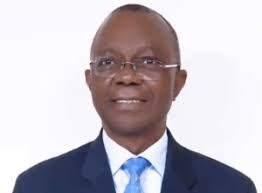The Lagos Chamber of Commerce and Industry (LCCI) on Thursday announced a change in its board with the election of Gabriel Idahosa as President and Chairman of the Council.
The Chamber’s Director General, Dr. Chinyere Almona, who made the disclosure during the Chamber’s 135th Annual General Meeting (AGM) in Lagos, said that Idahosa’s appointment was sequel to the expiration of the tenure of the incumbent President, Dr. Michael Olawale-Cole, who had been serving since 2021.
Almona described the new LCCI president as a distinguished individual with a remarkable track record of leadership, dedication, and commitment to the growth of various organisations, particularly in the fields of professional services, trade promotion, and industry.
The Director-General noted that his emergence as President of LCCI was in recognition of his contribution and commitment to the ideals of the Chamber’s movement, its public policy advocacy, and the protection of the interests of the Nigerian business community.
She said: “Indeed, we are very pleased as Mr Gabriel Idahosa assumes the role of President of the LCCI.
“As a council member and a key officer of the Chamber, he has brought his extensive knowledge and experience to bear and has provided quality perspectives to deliberations at the Chamber.
“We are confident that his presidency will enhance the Chamber’s role as a leading advocate of best business policy and practice to promote and protect the interest of its members and the business community at large”, Almona added
The LCCI Director General disclosed that the chamber recorded N646.95 million as revenue for the year 2023, against N503.87 million for year 2022, translating to an increase of 28.4%.
In his remarks, the outgoing president, Olawale-Cole, urged the government to provide the much-needed support to enhance the successful takeoff of the Dangote refinery in order to improve fuel supply, reduce the current pressure in the FX markets and ensure that the money invested in the building of the refinery does not go to waste.
The industrialist noted that developments in the global and domestic space significantly impacted world economies, Nigeria inclusive, even as the country continued to battle record-high inflation rates, high energy costs, and supply chain disruptions.






